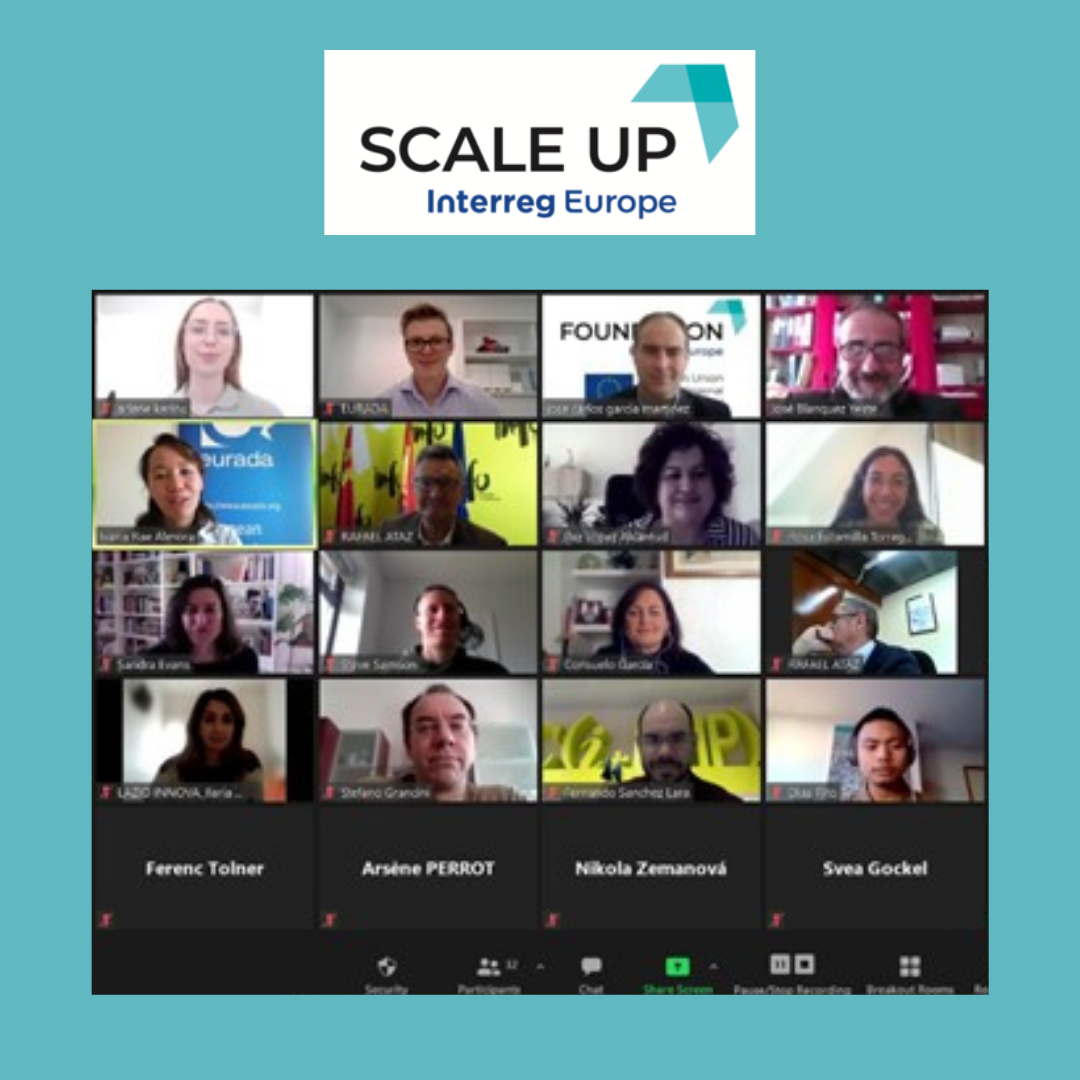Scale Up's commitment to improve policy instruments supporting SMEs’ capacity to growth in national and international markets was reflected once more on the 24th of February when it participated in the EU Industry Days through the organization of the event “Scaling Up SMEs in the midst of Corona”. It was necessary to present and analyse this topic during the European Industry Week since economic models and processes have continuously had to reinvent themselves and along with this, so have the actors and factors that come with them. Through this event, several Interreg Europe projects that aim for the growth and development of SMEs were highlighted. The webinar opened with a speech from a European Commission representative followed by 5 presentations from the different Interreg Europe projects.
The Commission's Directorate-General for Internal Market, Industry, Entrepreneurship and SMEs opened the event by reviewing the pillars of the new European SME strategy: digitalization and sustainability, access to finance, cutting red tape and tapping into markets. Although the SME strategy was developed before the pandemic, the Commission has responded with an unprecedented plan through the Multiannual Financial Framework (MFF) and the Next Generation EU 2021-2027, where SMEs are positioned as the engines of recovery. The SCALE UP project followed by highlighting the concentration and robustness of SMEs within the EU Industrial Policy. Here, Scale Up´s contributions to European competitiveness and the acceleration of regional economic growth were showcased.
Afterwards, CEEI Cartagena explained how the Foundation project bolsters SMEs by building regional resilience to industrial structural change. The three operational aims of the project for SMEs include: the creation of innovation ecosystems to understand the challenges for SME birth, development and growth; the generation of interaction between stakeholders for sustainable SME competitiveness; and the development of effective policies to build regional resilience to industrial structural changes. During the roundtable portion of the event, three different Interreg Projects dealing SMEs were presented: ACSELL, SIE and 40 READY.
To begin, the ACSELL project was introduced. ACSELL aims to sensitize the public sector, innovation intermediaries and SMEs towards expanding SME competencies by promoting open innovation ecosystems and integrating the user with a living lab approach. Secondly, the SIE project explained how to increase an SME’s internationalization capacity and to improve internationalization support for SMEs. In this regard, international trade can help SMEs to become more innovative and productive, find new markets, customers, sales, as well as spread risk and help extend the ‘shelf life’ of products and services. The reality is that it is a complicated process, and the digital skills gap must be addressed as a priority in order to achieve the internationalization of SMEs.
Finally, through the 40READY project, the importance of strengthening SMEs’ capacities to engage in Industry 4.0. was discussed along with the necessity to improve the implementation of regional development policies and programs about European Territorial Cooperation. Thanks to the participation of these specialists in the European economy, participants had a better understanding of the current situation of SMEs. They also left with a deeper insight of the work that European projects are doing for the benefit of small and medium-sized companies.
More information:
- Video of the event: https://www.youtube.com/watch?v=HlGFT1JEfNY&t=3650s
- Scale Up: https://www.interregeurope.eu/scaleup/
